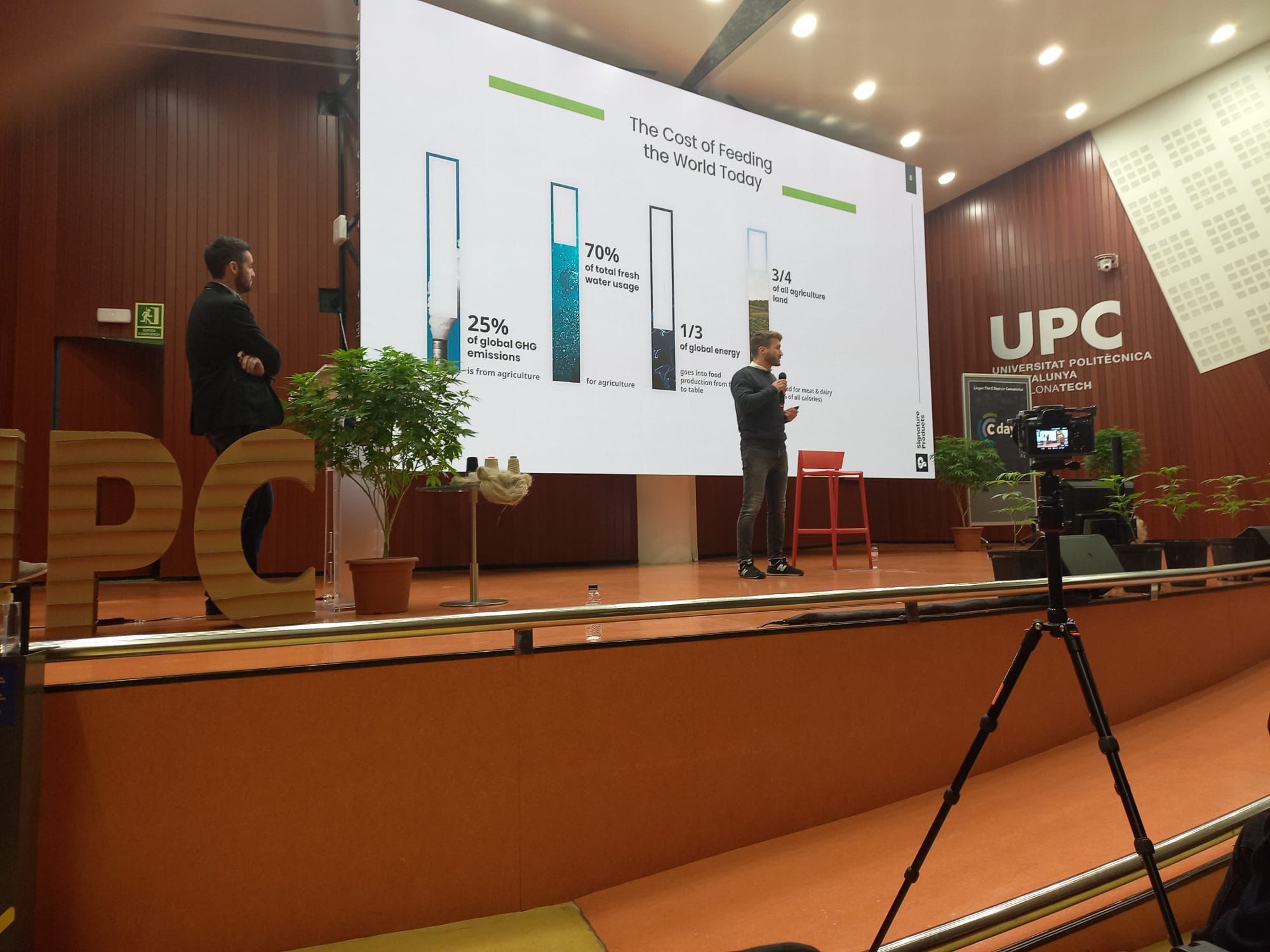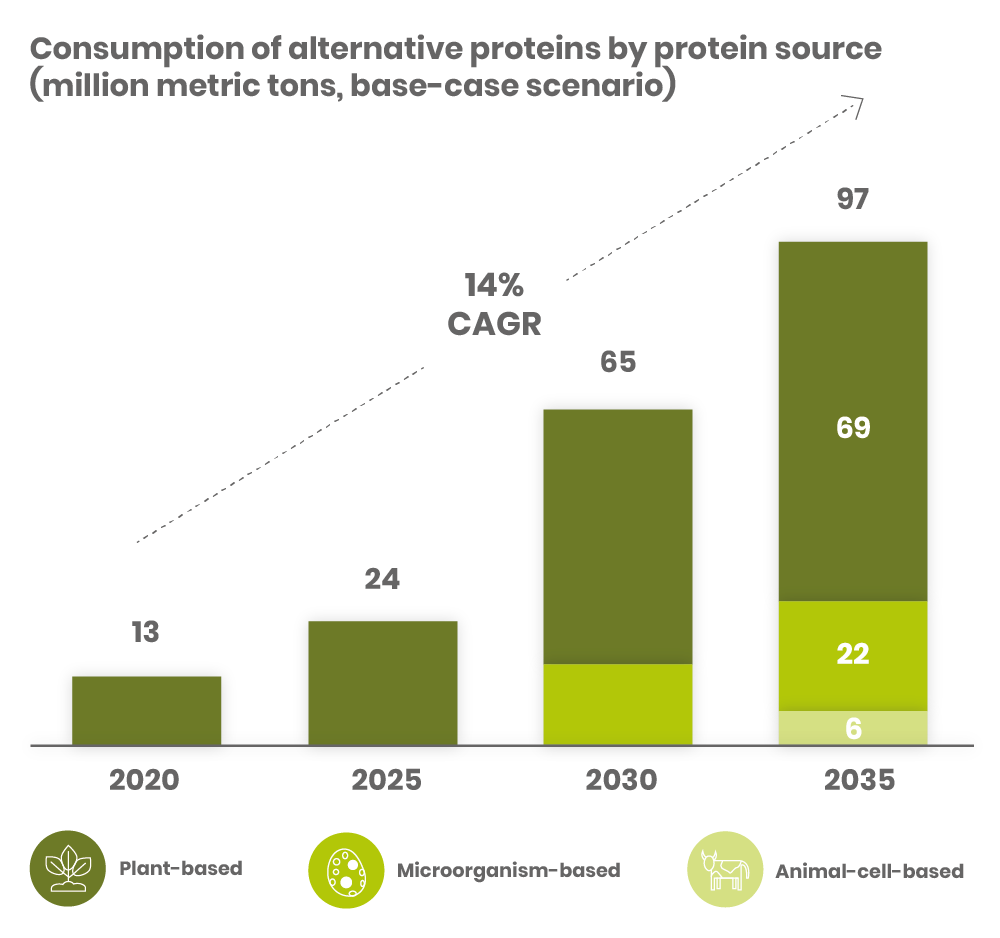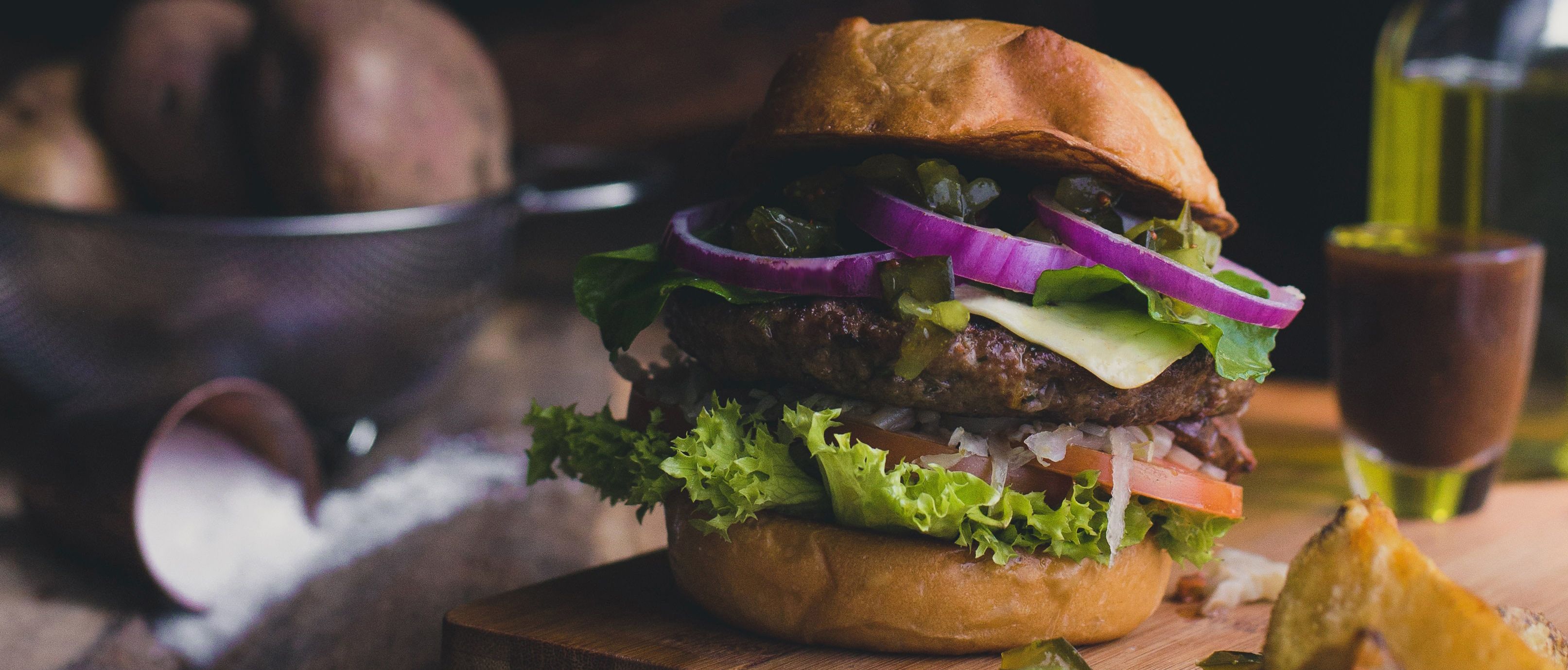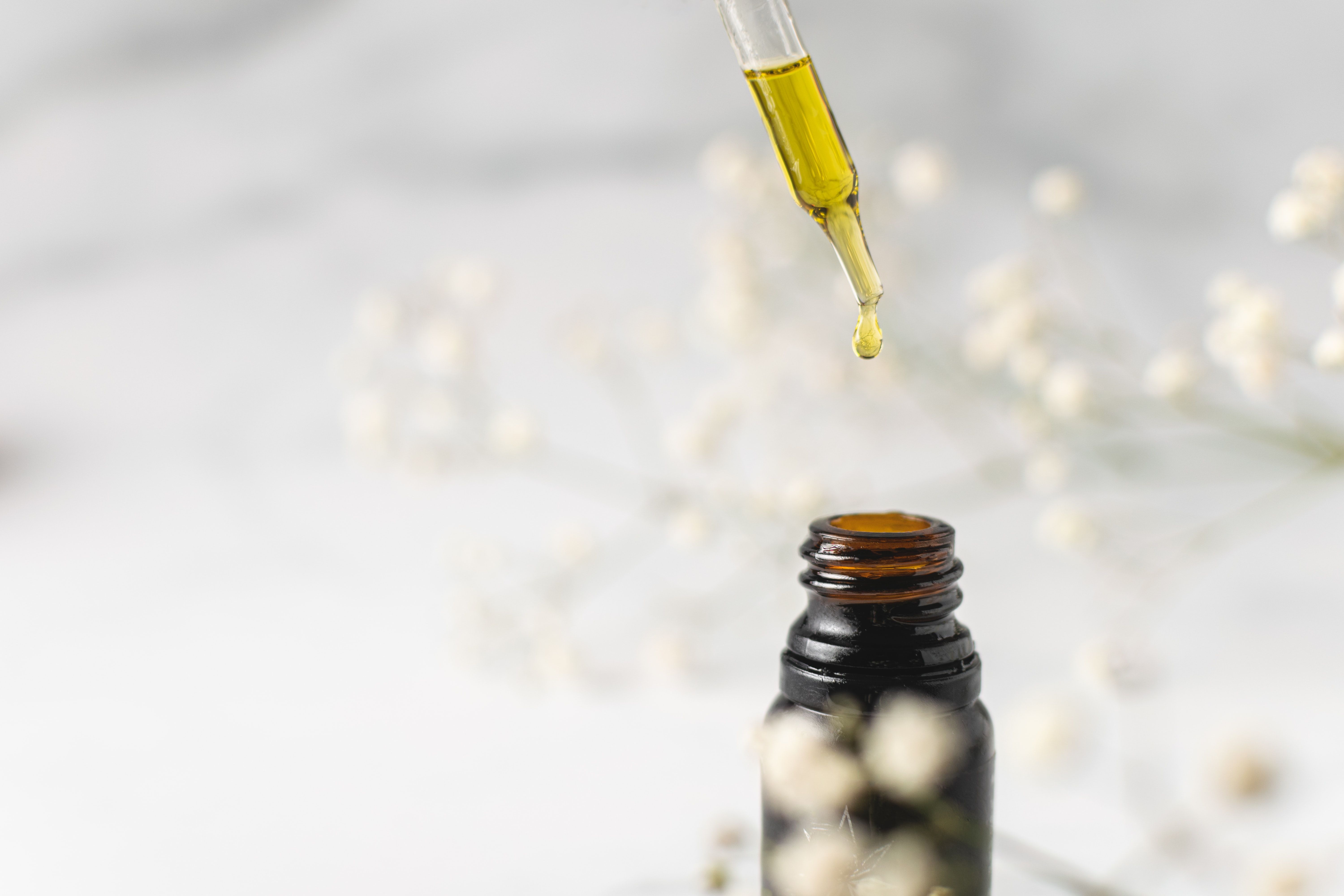CannabisHub: Talk about German market trends
As part of the CannabisHub, an initiative brought to life by the Universitat Politècnica de Catalunya (UPC), Florian Pichlmaier gave a talk about trends in the German hemp market. The event took place on November 25th 2021 in Barcelona, Spain.

As part of the CannabisHub, an initiative brought to life by the Universitat Politècnica de Catalunya (UPC), Florian Pichlmaier gave a talk about trends in the German hemp market. The event took place on November 25th 2021 in Barcelona, Spain.
In his presentation, Florian talks about existing hemp products on the German market and about the future development of the market and new products. After taking a look at current charts about the potential of hemp, he dives deeper into the market and gives an overview of products currently on display in the shelves of German supermarkets.
The dominating products that can currently be found are all made out of hemp seeds. But Pichlmaier sees even more potential in products made of hemp protein. A look at the food market shows that the meat industry currently makes up for the biggest part of it. But meat is not long-term sustainable and we can observe an increase of plant-based and cultured meat. This is also due to people trying to live healthier by reducing their meat-intake, are looking out for animal welfare, are concerned about the impact of meat-production on the climate or just can't afford meat.

Based on the growing need for plant-based food, Pichlmaier also gives a sneak-peek into a current research topic at Signature: The development of hemp-based meat. He presents hemp-based burger patties, chicken sticks and typical German "schnitzel" made of hemp but with the same taste as their animal-based counterparts.

As one of the big factors for companies which decide to use hemp protein he also mentions the competitive prices of hemp protein when compared to other proteins. The only cheaper commonly used plant-based protein right now is genetically modified soy protein. And this is also one more strength of hemp protein. As hemp is a very robust plant, it is very easy to organically grow hemp. There is no genetic modification or pesticide application necessary. This keeps the production costs down and increases the quality of the resulting protein.
After talking about the food market, Florian moves on to the German cosmetics market. He shows a range of different products that mostly contain hempseed oil or cannabinoids such as creams, massage oils, bath balls and mouth care products. He shows the "trick" used by a lot of companies to enrich already well performing cosmetic products with cannabinoids such as CBD to further underline their health claims.
Another market he shows is the animal feed market that is mainly based on hemp seeds, stems or pressed seed cake. As a current bottleneck in the animal feed market, he mentions the sparsity of certified hemp raw materials. A lot of large feed manufacturers require e.g. GMP+ certificates for their ingredients.
A last market he picked out is the CBD oil market which is still trending. He shows how the focus shifts away from classical CBD oils (which are just made of using a carrier oil such as hemp seed oil and adding some CBD to it) to more specialised oils that solve a specific problem. One example is a product that helps with sleep problems that also contains melatonin. This also makes it possible to use certain health claims with the product which is not possible in Germany when selling pure CBD oils.

In the last part of his presentation, Florian gives an overview about which kinds of products can be legally sold as food / cosmetics / feed and he shows where the "grey"-areas currently are.
He urges the audience to not sell any CBD oil as food product. CBD is still considered as novel food and requires an expensive application to the European Union. Everyone who sells CBD as food in the meantime is risking legal issues and also a bad reputation for the whole industry.
Although there is no legal base to sell CBD as cosmetics, natural CBD has been added to the CosIng-Database, an EU-wide database that lists allowed cosmetic ingredients. Combined with a safety assessment and a CPNP registration, hemp cosmetics can be sold.

